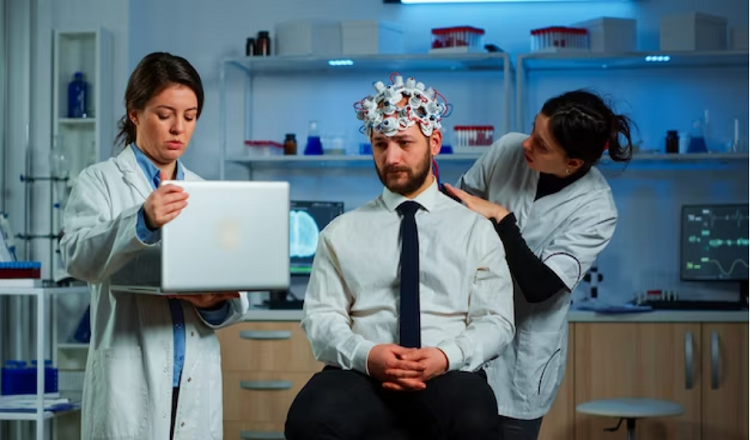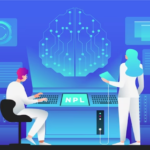
Greetings from the digital era, in which technology plays a crucial role in every aspect of our life. The way we interact, work, and live has been changed by technology, from cellphones to social media. Despite all of its advantages, there is rising worry about how technology will affect mental health.
An American Psychological Association study found that people’s usage of technology has raised their stress and anxiety levels, especially the younger generation. It’s no wonder that mental health difficulties are on the rise given the growth in cyberbullying, social media addiction, and the continual pressure to be connected.
Technology’s influence on mental health, however, is a complicated and multidimensional problem. On the one hand, technology has made it possible to access online resources, support groups, and teletherapy, creating new opportunities for mental health care. On the other side, it has also brought forth brand-new difficulties, like the requirement to strike a balance between digital connectedness and in-person human relationships.
This blog will examine how technology has affected mental health in the USA. We’ll discuss the role of social media, video games, and the future of technology in mental health care, as well as the advantages and disadvantages of technology’s impact on mental health. So let’s explore this intriguing and current issue and learn how technology is influencing our mental health.
Technology’s Beneficial Effects on Mental Health in the USA
Although they are often ignored, technology has good effects on mental health. People can now more easily access options for mental health thanks to technology, including online counselling and therapy. People who might not have had access to conventional kinds of therapy because of obstacles like location, expense, or time limits now have one thanks to this.
Technology has also improved mental health education and awareness, lowering the stigma attached to mental illness. Online forums and support groups have grown in popularity, giving people a secure setting in which to share their stories and find emotional support. As a result, there is now a sense of community and loneliness has decreased.
Last but not least, to assist people in monitoring and managing their mental health, smartphone applications have been created. With the help of these applications, users may track their symptoms, create goals, and get on-the-go mental health care. Overall, it’s imperative that we continue to research and use these resources to enhance mental wellbeing in the USA because the positive effects of technology on mental health cannot be understated.
Technology’s Harmful Effects on Mental Health in the USA
The increased social isolation and loneliness that technology can bring about is another detrimental influence on mental health. People who spend more time using technology may have less time to make in-person contacts, which can result in feelings of loneliness and isolation. As social support has been demonstrated to be a crucial protective factor against mental disease, this may have a substantial impact on mental health.
Additionally, particularly among young people, cyberbullying and online harassment are becoming more prevalent. Technology’s ability to give anonymity can make it simpler for people to engage in harmful behaviours, which can result in social isolation, sadness, and feelings of worry.
Another worrying problem is technology and social media addiction, where people may become too dependent on their gadgets and suffer severe effects on their mental health, such as low self-esteem and elevated anxiety.
The blue light that screens emit can also disturb the body’s natural sleep cycles, which can have a harmful effect on mental health. It’s critical to take precautions to control technology use in a healthy way and to be aware of the detrimental effects of technology on mental health.
Social media’s effects on mental health in the USA
With many people reporting negative consequences on their wellbeing, there is growing worry about how social media use affects mental health in the United States. One of the biggest effects is how social media has a propensity to encourage comparison and perfectionism, which results in low self-esteem and feelings of inadequacy.
Additionally, people are under pressure to always stay connected and active on social media, which has led to the rise of the problem of FOMO. As a result, there may be an increase in worry, tension, and social isolation.
People frequently get unwanted remarks and criticism about their appearance on social media, which contributes to bad body image and body shaming. The effects on one’s self-esteem and body image may be profound.
Last but not least, studies have linked greater social media use to higher levels of anxiety and sadness. It’s critical that we become aware of the potential harm social media may do to our mental health and take action to handle it in a healthy way by setting limits and practising self-care.
Video games’ effects on mental health in the USA
In the United States, there is continuous discussion about how video games affect mental health. Video games may have both positive and bad effects on mental health. While some studies have emphasized possible benefits, such as better cognitive function and reduced stress, others have highlighted negative consequences, such as increased aggression and diminished social skills.
A rising concern is that some people are becoming addicted to video games, playing them for long stretches of time while disregarding other aspects of their lives. Negative effects on mental health, such as elevated levels of anxiety and depression, may result from this.
Online gaming communities have also been associated with better mental health, and studies have found that these groups can offer a sense of community and social support. They may also have undesirable effects, such cyberbullying and online harassment.
It’s crucial to approach video games from a balanced standpoint, taking into account both their possible benefits and drawbacks for mental health. Setting gaming time restrictions and participating in other healthful activities are examples of strategies that might help reduce any harmful impacts.
Technology and Mental Health in the USA: The Future
With new technologies opening up fresh opportunities for mental health treatment and assistance, the relationship between technology and mental health in the United States is an intriguing one to consider. The creation of digital tools and apps that can offer individualized mental health assistance and treatment, such virtual reality therapy and cognitive-behavioral therapy delivered through mobile applications, is one of the most promising fields.
The future of mental health is also anticipated to be significantly influenced by artificial intelligence (AI), with chatbots and virtual assistants powered by AI offering support and direction to people with mental health issues.
Additionally growing in popularity are teletherapy and telemedicine, which give people remote access to mental health treatments and treatment.
As these technologies advance, it’s critical to think about the moral implications of their application to mental health, including concerns about data security, privacy, and potential biases in AI algorithms. The future of mental health care will depend on finding a balance between the potential advantages of technology and the requirement for ethical considerations.
Conclusion
In conclusion, there are many different aspects to the topic of how technology affects mental health in the USA. Technology has the ability to improve access to resources and raise awareness for mental health issues, but it can also have unfavourable effects such increasing social isolation, addiction, and sleep deprivation. Additionally, there is ongoing discussion regarding the beneficial and bad effects of social media and video games on mental health.
Future advancements in technology, including teletherapy and artificial intelligence, show considerable potential for the support and treatment of mental illness. However, it’s critical to think about the ethical implications of their use and work toward a balanced strategy that gives equal weight to the advantages and potential risks.
We can all do our part as individuals to lessen the detrimental impacts of technology on mental health by limiting our screen time and participating in other healthy activities. On a social level, there is a need for more information and understanding about how technology affects mental health, as well as for laws and rules that give mental health precedence in the creation and application of technology.
In conclusion, the effect of technology on mental health in the United States is a complicated problem that calls for constant consideration. We can maximize the potential advantages of technology while minimizing its detrimental effects on mental health by cooperating and adopting a balanced strategy.
Read More You May Like:








